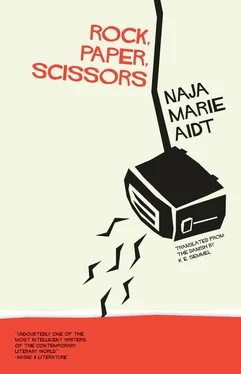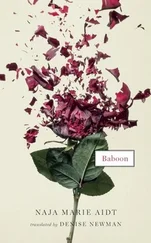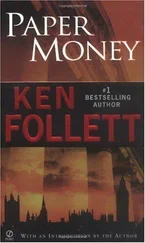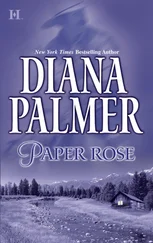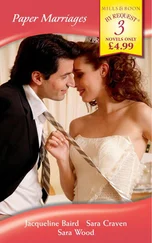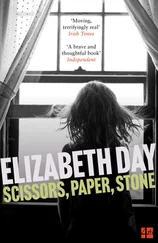“Are you looking for something in particular?”
“Oh, no. We’d like to buy a gift for our friend for his confirmation. His name is Juan.”
“Yeah, Juan Alvarez Garza.”
“Uh huh. And, um, can we get his name inscribed on one of these?” the other says as a blush expands across his pimply cheeks. Thomas’s anger is transformed at the sight of these cheeks. They move him, and now he’s moved. His anger morphs into a kind of happiness. I’m going crazy, he thinks, maybe I’m manic-depressive.
“Can we have his name inscribed?” the boy repeats.
“Of course you can. Does your friend write poems?”
“What?”
“No, oh, poems, I don’t think so. .” says the blushing boy.
“Hmm. But maybe he’ll want to write poetry after you two give him such a nice pen,” Thomas smiles. The two boys stare uncomprehendingly at him. The blushing boy’s teeth are locked in shiny silver braces. The other boy pulls his hat down over his forehead. “Well, then I think we should buy this one here,” says the one with braces, hesitantly, pointing at a royal blue ballpoint pen behind the glass display case. “Don’t you think?” The other boy nods. “Certainly,” Thomas says. “Then we’ll just have to make sure we spell his name correctly. I’ll send the pen to the engraver. Unfortunately, we don’t do that here.” The two boys gape at him. “You can pick it up in about ten days. Does that give you enough time?” The boy with the hat nods cautiously. He fills out the slip with large clumsy letters, while the other boy pays the deposit with some crumpled bills from his pants pocket. They give a polite farewell and trip over each other’s feet, flustered, on their way out of the store. The slow-moving glass doors disgorge them onto the sidewalk like a lump of meat. They stand there a moment, then the blushing boy begins shuffling off northward; the other one follows after him, his arms dangling at his side. Thomas looks at Annie, and starts laughing.
“Did you see them?” She nods, but doesn’t understand why it’s so funny. “Did you see his braces? How the other one pulled his hat down to look more like an adult? Man, they were awkward! But sweet.” For several minutes Thomas shakes with laughter, he sweats from laughter, chuckles, coughs, spits, and gurgles. Thank God there are no customers in the store, he can’t stop laughing, the thought of their gaping faces, puberty’s bell jar, the stupidity it entails. “Did you see how thick they were?” and he continues to laugh, more and more, and now not only because of the boys, but from a deep and dark place, a hollow, dangerous place, now he can feel it, how it pulls on his body, a primordial soup, a desert, a volcanic eruption, horrifying, and Annie mumbles nervously: “What’s so funny about it?” But that only sends Thomas off on a new fit of laughter, stomach cramps, tears, the laughter cleanses him, he can’t do it anymore, and here come Maloney and Peter through the door with terror in their eyes, alerted by the sounds, the howls, and that too is funny, painfully funny, they cling to the door as if they don’t dare enter the store. “What the hell’s wrong with you?” Maloney says. “Nothing,” Thomas pants, bending forward. “It’s just those two boys, oh God, you should’ve seen them. .” Several minutes pass, Thomas contorted by the wrenching of his body’s howling, giggling, sputtering, and gradually his laughing fit subsides to a hollow moan. Then there’s silence. Then it’s over, and it’s as though he steps outside of himself and sees a tall, sweat-soaked man in disheveled clothes, face flushed. Filled with shame. Maloney makes an effort to smile. “Good to see some life in you,” he says softly, returning to the basement with Peter. Annie sits with her head bowed, nervously picking at a fingernail. The door opens, and an older gentleman wearing a gray suit walks in. Thomas escapes to the bathroom.
As if the insanity of his laughing fit hasn’t quite released him, he chain smokes, oddly disquieted the rest of the afternoon. He calls Patricia and tells her that he’ll be home late (which surprises her, this morning he was aloof and impossible to get a word out of, and now he wants to go out?). He calls Alice and promises to loan her a small sum, gets the address of the music venue, tells Maloney that he’ll close up, and enjoys the solitude of the empty store after the others have gone home; he wanders around in the half-darkness between the shelves, running his hands over the rough watercolor paper, the smooth sketchbooks, the pencils’ perfect hexagons and their sharp lead tips, and now the contours of the deckled-edge paper, dull and yellowy, the matching envelopes. His hands find calm by touching the clean, new things. He squeezes a cylindrical eraser and sniffs it, the fresh scent of a new pencil case, and the memory the scent evokes is powerful: shredding an eraser into tiny pieces, trying to eat it because it smelled so tempting, edible, and then the dry little disappointment once it entered his mouth. He activates the alarm and locks the door, and at 7:00 P.M. he downs a greasy meal of enchiladas accompanied by a mountain of deep-fried chicken wings, all of which he washes down with beer. The restaurant is a hole-in-the-wall, but it’s filled with people eating or waiting to eat; there’s a line at the register, where customers pick up pre-ordered take-out. Salsa music is playing, and the sound from the scratchy loudspeakers mix with the diners’ loud conversations and the waiters’ shouts to the kitchen staff, who now and then can be seen through a slot in the wall. Thomas stands out among the assembled collection of not very tall people. He sits at the bar and thinks about his meeting this afternoon with the visual artist. Upon receiving the card, she’d come immediately to the store, apparently satisfied with the invitation to choose a fitting compensation for the “dried-out” colors, but then her mood shifted abruptly, and once again she complained about the watercolors, saying that “it couldn’t be right,” and that normally she was very happy with their assortment and quality, that she’d never had any problems with even a “single piece of charcoal,” but now she had to admit that she’d lost a great deal of respect for “the entire business.” Thomas, still clammy and high-strung following his laughing fit, assured her that he was terribly sorry about the whole wretched ordeal, that the colors already had been returned to the manufacturer, and that it most certainly wouldn’t happen again. “How can you guarantee that when you just told me that it’s the manufacturer’s fault and therefore the manufacturer’s responsibility?” she asked, rolling her eyes in exasperation, the whites shot through with fine red threads. “That’s simply not possible.” His anger returned. He felt like slapping her face, like slamming his fist into her jaw. Instead he clenched his fists, terrified at his impulse, and, holding his breath, asked her to choose whatever she wanted, repeating that she was one of their most cherished customers (though “cherished customers” came out as a fierce sneer) and that he would do everything in his power to ensure that she would once again be satisfied shopping at Lindström & Maloney. The visual artist gave him a distrustful sideways glance. Then he fled to Annie at the register. She stood leaning against the counter, reading. He could see now that she was absorbed in a battered paperback copy of The Idiot . She rubbed her right foot against her left shin. They stood there for a moment, him breathing heavily, her glancing at him and returning her foot to the floor.
“So, you’re reading Dostoyevsky?”
“Yes?”
“Hmm. I didn’t think you were into that kind of thing.”
“What do you mean, ‘that kind of thing’?”
Читать дальше
